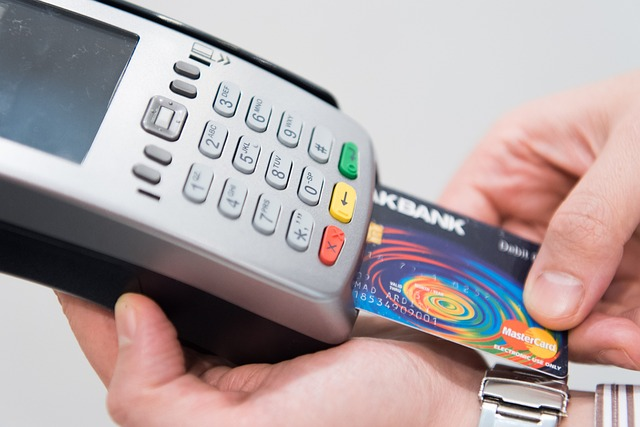What is a Business Credit Card?
A business credit card is like a consumer credit card but specifically for a business. It offers businesses a convenient way to manage cash flow, track expenses, and build credit history.
Business credit cards offer benefits such as earning rewards on regular credit card purchases, simplifying expense tracking, and providing access to higher credit limits compared to personal cards. Credit card issuers may also provide purchase protection and help establish a distinct credit profile for the business.
Business credit cards are issued based on the company’s creditworthiness rather than the individual owner’s. They help separate personal and business finances, making tracking expenses and managing cash flow easier.
A company typically needs an established business entity, such as an LLC or corporation, to be eligible for a business credit card. During the application process, the applicant may need to provide details about the business’s revenue, years in operation, and other financial information.
What does it mean to Liquidate a Credit Card?
Liquidating a credit card is a strategic financial move that allows individuals or businesses to withdraw money quickly using their available credit line. This process can be useful when immediate cash flow is needed for expenses that traditional means cannot cover.
By converting the credit card balance into cash, businesses can effectively utilize their credit limit for various financial needs beyond just making purchases. It’s important to note that liquidating a credit card should be done responsibly, as it can incur additional fees and interest charges if not appropriately managed.
Why would a Business Liquidate Credit Cards?
Small businesses may choose to liquidate their business credit cards and withdraw cash for various reasons. One common reason is to have immediate access to funds for business expenses or investments that require cash payment.
Additionally, some businesses may need cash quickly to take advantage of time-sensitive opportunities or to cover unexpected expenses. Liquidating credit cards can also be a strategic financial move for businesses looking to streamline their finances or restructure debt. The decision to convert business credit cards into cash can provide small businesses with the financial flexibility and liquidity needed to navigate various business challenges and opportunities.
What are the benefits of Liquidating Business Credit Cards?
Liquidating business credit cards by converting credit into cash offers several advantages for companies. This process allows businesses to access much-needed funds quickly, providing flexibility in managing cash flow and covering immediate expenses.
By utilizing the available credit as cash up to the available credit limit, companies can seize investment opportunities, address unforeseen financial challenges, or fund growth initiatives. Liquidating credit cards in this manner can help businesses stay agile and responsive to changing market conditions, ultimately enhancing financial stability and resilience.
Additionally, liquidating business credit cards allows companies to use funds from an existing credit line. This saves time as you don’t have to apply for new credit.
What are the drawbacks of Liquidating Business Credit Cards?
While liquidating business credit cards can offer several benefits, it also carries high risks. One of the most significant drawbacks is the potential costs. For example, using a cash advance often carries a cash advance fee plus a higher APR than for purchases. Additionally, the cash advance limit is typically 20% to 30% of your overall credit limit, and exceeding this limit or not paying off the advance promptly can result in even higher fees and additional charges. Interest rates on liquidated credit can accrue quickly, leading to debt.
Another risk is that even when you convert credit limits into cash, it’s still reflected as a higher credit card balance. This reduces your overall credit limit and raises your credit utilization. A high credit utilization ratio can significantly lower your credit score.
Carrying a high credit card balance also means higher monthly payments. It can be difficult to make those payments, which can compromise your future cash flow. Missing payments damages credit scores. If you only make the minimum monthly payment, you’ll also pay a lot more interest charges.
The risks and costs of liquidating business credit cards are why it’s essential to use this strategy only when necessary and to ensure you have a solid plan for managing the increased debt.
Liquidating Business Credit Cards Pros & Cons
Pros:
- Can provide immediate access to cash.
- Helps cover temporary cash flow gaps.
- Can provide funding for time-sensitive opportunities or investments.
- Utilizes an existing credit line rather than applying for new credit.
Cons:
- Potential for increased costs from high interest rates and cash advance fees.
- Reduces available credit for future purchases or business needs.
- Increases credit utilization, which can lower credit scores.
- Higher monthly payments on credit card balances can reduce future cash flow.
What are the different ways of Liquidating Business Credit Cards?
Small business owners can liquidate business credit cards in several ways. Understanding your business credit card’s terms, such as ATM fees, is crucial to your ability to turn credit into quick cash.
Cash Advance
One way to liquidate a business credit card is to use a cash advance. This involves advancing cash from your credit limit up to the maximum cash advance amount, which is usually a percentage of your credit limit, to your business bank account or withdrawing it from an ATM (depending on the card policy). Cash advances are a straightforward way to get cash from your credit card. Interest on cash advances begins accruing immediately after the transaction. However, it’s important to note that credit card companies typically charge a fee and a higher APR for cash advances.
Balance Transfer Cards
One strategy to consider when liquidating business credit cards is using a balance transfer card. Balance transfers allow you to transfer high-interest debt from one credit card to another with a lower or 0% interest rate for a promotional period. This can help you save money on interest charges and pay off your debt more efficiently. Balance transfers often come with their own fees, typically a percentage of the transferred amount.
When using a balance transfer card for liquidating business credit cards, it’s essential to look for a card with a long promotional period and low or no balance transfer fees. Additionally, make sure to transfer only the amount you can realistically pay off within the promotional period to avoid accruing high-interest charges once the promotional period ends.
You can use this method in conjunction with a cash advance using the following steps:
- Get the largest cash advance from an existing or new business credit card.
- Apply for a balance transfer card with an extended 0% APR promotional period.
- Transfer the balance from the card with the cash advance to the 0% APR card.
- Pay off the balance in full during the promotional period.
Refund Negative Balances
Refunding a negative balance on a business credit card typically involves contacting the credit card issuer directly. Once the negative balance is identified, the credit card company can process a refund to return the excess amount to the cardholder.
Depending on the issuer’s policies, this refund can be issued as a credit to the card account or a direct payment to the cardholder. Tracking negative balances on business credit cards is essential to ensure accurate financial records and avoid potential issues with account reconciliation.
Convenience Checks
Convenience checks can be a valuable tool for liquidating a business credit card. They are typically linked to the credit card account and can be used to make purchases or transfer funds to a bank account.
This method can provide a quick and easy way to access instant cash for business expenses or to pay off other debts. However, it’s important to be mindful of any fees or interest rates associated with using convenience checks, as they can vary depending on the credit card issuer.
Purchase and Resell
One strategy for liquidating business credit cards is to make purchases with the card and then resell those items at a higher price point for cash. This method allows business owners to convert their available credit into tangible cash that can be used for other business expenses or investments.
Businesses can effectively turn their credit into liquid assets by carefully selecting items with a high resale value and market demand. Companies that charge your credit card can send a check to you, converting credit into cash without cash advance fees. However, it is crucial to consider factors such as profit margins, market trends, and potential risks before engaging in this practice.
Purchasing Gift Cards
Another method is purchasing gift cards with your business credit card and then using those gift cards to make purchases or convert them into cash. Prepaid gift cards can be purchased with credit cards as a cash equivalent. However, this approach may come with fees or restrictions, and some credit card issuers may view this as a cash advance, applying higher interest rates.
Peer-to-Peer Payment Services
Utilizing peer-to-peer payment services like PayPal or Venmo is another option. Peer-to-peer payment services like PayPal and Venmo allow for cash transfers using credit cards. By sending money to a trusted individual and having them return the funds, you can effectively liquidate your credit card. Be cautious, as this may violate the terms of service of the payment platform or your credit card agreement.
Charge Rent on a Credit Card
While commercial landlords typically do not accept credit card payments for rent due to high processing fees, there are now apps available that allow business owners to pay rent using a credit card.
These apps act as intermediaries, processing the credit card payment and transferring the funds to the landlord. This method can be convenient for tenants who prefer to earn rewards or points on their credit card payments, but it’s essential to be aware of any additional fees associated with using these apps.
Additionally, not all landlords may be open to this payment method, so it’s crucial to communicate and confirm with them beforehand. Paying rent with a credit card through these apps offers a modern and flexible solution for tenants looking to manage their finances effectively.
Frequently Asked Questions
Here are the most common questions about how to liquidate business credit cards.
What are the costs of Converting Credit Cards into Cash?
Converting credit cards into cash can be costly due to the various fees and interest rates involved. Cash advances usually come with higher fees than regular purchases. These fees can range from a flat rate to a percentage of the amount withdrawn.
The annual percentage rate (APR) for cash advances is typically higher than the APR for purchases, making it more expensive to borrow cash using credit cards. Interest starts accruing immediately on cash advances, unlike regular purchases, which have a grace period. Emergency loans may be offered by credit card companies during financial crises.
How can a merchant account help with Liquidating Credit Cards?
Merchant accounts facilitate credit card transactions for businesses, serving as a secure intermediary between the business, customer, and financial institution. They streamline the process of receiving funds from credit card payments, ensuring prompt and secure transactions. By offering expanded payment options and enhanced security measures, merchant services help businesses cater to a broader customer base and protect against fraud.
What are my alternatives to Liquidating Business Credit Cards?
Liquidating business credit cards is an unconventional funding method that can be viable if your business is in a tight pinch. However, there are far more advantageous and conventional ways to gain funding to support business cash flow.
Business Line of Credit
A business line of credit is a flexible financing option that allows a business to access funds up to a predetermined credit limit. Business lines of credit typically offer lower interest rates and more manageable repayment terms, making them a better option for businesses looking to access funds for various expenses without resorting to high-cost credit card debt. Additionally, a business line of credit can help improve cash flow and provide financial stability.
Personal Loans
Personal loans can be a viable option for business financing, especially for small businesses or startups without established business credit. However, it’s essential to carefully consider the interest rates and terms of the loan to ensure it is a financially sound decision for the business. Additionally, using a personal loan for business purposes can also impact personal credit scores, so it’s crucial to manage finances responsibly.
Merchant Cash Advance
A merchant cash advance (MCA) is a form of funding in which a business receives a lump sum of capital upfront in exchange for a percentage of future credit card sales. While costs may be comparable to business credit card APRs (or even higher in some cases), repayment is tied to future sales. This means it fluctuates with your business’s cash flow, whereas credit card payments are based on your current balance.
Other Small Business Loans
There is also a wide range of small business loans to consider. Most of these carry lower rates than business credit cards or an MCA. You may be interested in one of the following loan options:
- Bad credit business loans.
- Business loans for women.
- Business term loans.
- Equipment financing.
- Accounts receivable factoring.
- Revenue-based financing.
- SBA loans.
- Working capital loans.
- ERC advance.
How to Liquidate Business Credit Cards – Final Thoughts
Liquidating business credit cards requires careful planning and execution to avoid financial pitfalls. Following the steps outlined in this article, business owners can effectively manage their debt and protect their financial well-being.
Contact us if you have more questions about liquidating business credit cards or to apply for a small business loan. Our alternative financing experts can help you find the best funding options for your business needs.

















